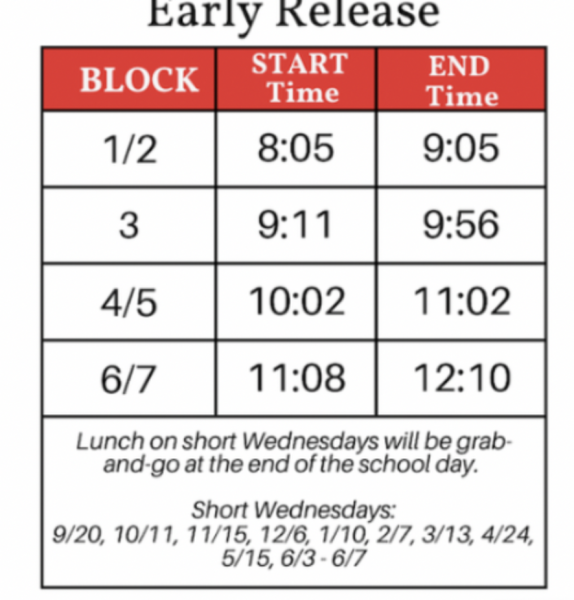Are 25 extra minutes of sleep really going to impact high schoolers?
April 14, 2023

At the beginning of February, a proposal shared with the Falls Church School Board suggested that school for students at both Meridian and Mary Ellen Henderson should start at a later time. If approved, school would start at 8:30 a.m. for the middle and high school and 9:00 a.m. for preschool and elementary school.
On February 14, the School Board held a month-long discussion with community members about adjusting the school start time, listening to feedback from students, staff, and parents until March 31.
While the School Board has not officially announced its decision yet, 25 minutes is not nearly enough time to impact anyone’s sleep, let alone high school students. Even if the delay may give students extra time to get ready and prepare for school in the morning, no student will suddenly feel recharged after a little less than half an hour of additional rest.
The 25-minute delay would heavily impact the vast majority of students, including athletes, choir, and any other students involved in before and after-school activities. For instance, sports practices would have to choose between beginning later in the evening or before the start of school. This would force student-athletes to go to bed at later times or wake up earlier to attend morning practices.
Sophomore Ellie Friesen, a starter on the girls varsity basketball team, claims that 25 minutes is not enough time to substantially have an impact on students. “We’re still going to be tired either way, so we might as well start at 8:05 a.m. so we get out earlier,” Friesen said.
With the later start time, Friesen also explained that instead of normally being released from practice around 5:30 p.m., she would not get home until 6 or 6:30 p.m. Even worse, she would not be home until 10 p.m. earliest for basketball games, barely allowing her any time to do homework or other activities.
Sophomore Domanic Zacharias-Martin, a football and lacrosse player, shared similar feelings about the proposal. “I want to get out of school at 3 p.m. instead of 3:30 p.m. I would rather have after-school practices than morning practices. The later start time just gives coaches an excuse to start holding morning practices,” Zacharias-Martin said.
Another student-athlete at Meridian, junior Morgan Knight, also agrees with her peers. Knight is a member of the girls varsity soccer team and communicated that the schedule change sounds ineffective. “Our practices are just going to end later, giving me no time for homework. My classes next year are going to be harder, so I am going to have barely any time to get my assignments done in a timely manner.”
The majority of students at Meridian are involved in school-sponsored activities, both before and after-school, and will all be harmfully altered if the proposed start time becomes a reality. Students will not be the only ones affected by the change; teachers, coaches, and parents will have to shift their schedules to conform with the extended dismissal. Although the new proposal’s main goal is to help students receive more sleep, the plan seems like it is doing the polar opposite. At the end of the day, pushing school back 25 minutes is not going to make a big difference in students’ sleep schedules and will only make matters worse.

















